Diversity in Wisconsin's high schools and the future of DEI in higher education
As political battles churn over funding for diversity, equity and inclusion at the Universities of Wisconsin, changing demographics influence how K-12 educators prepare new generations of college students.
By Hannah Ritvo
February 22, 2024 • Southeast Region
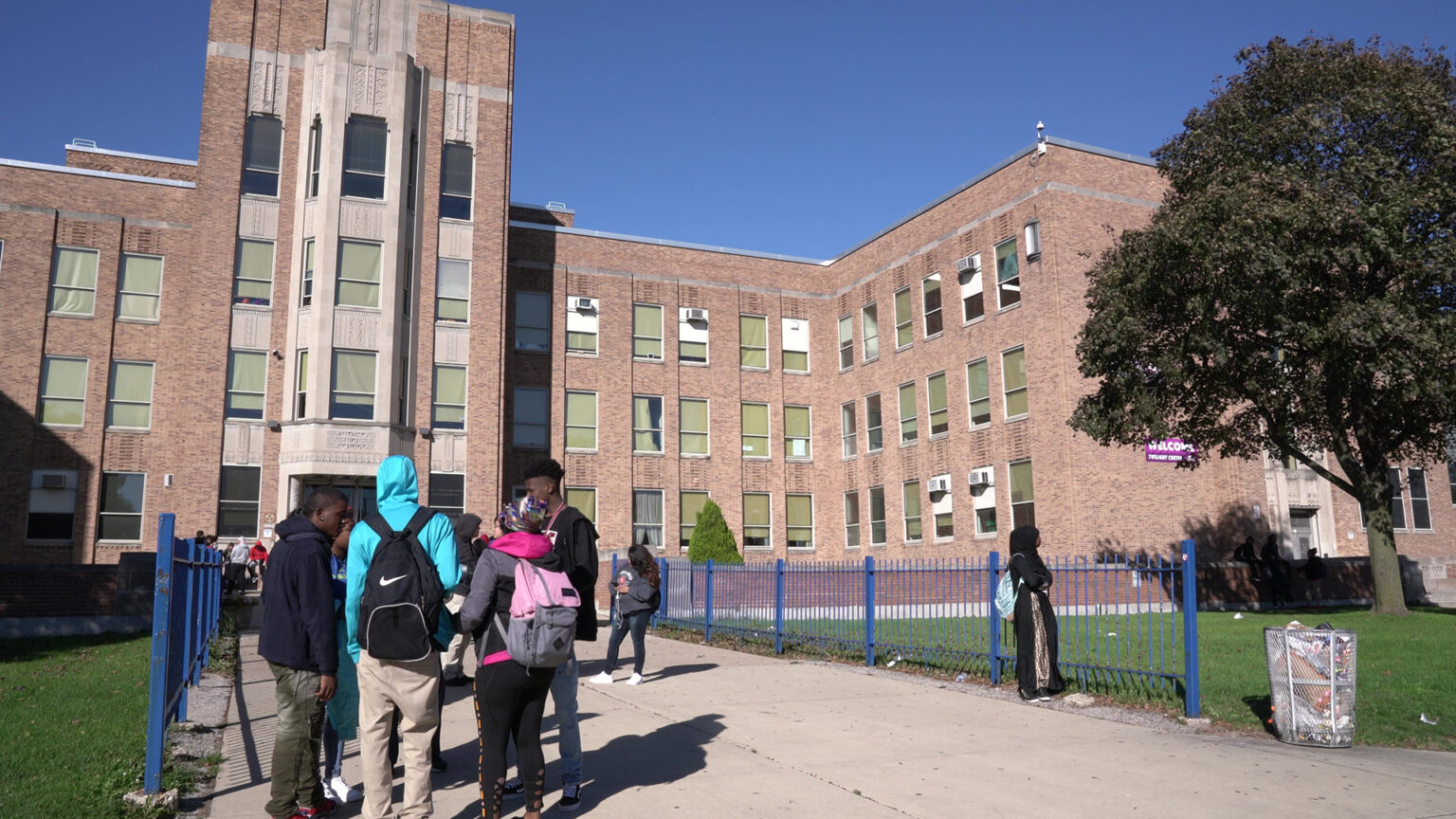
Students socialize outside Casimir Pulaski High School in Milwaukee on Oct. 16, 2018. (Credit: PBS Wisconsin)
Dr. Demond Means grew up during the 1970s in Milwaukee, where he experienced firsthand the importance of diversity in education.
Growing up African American in one of the most segregated cities in the country, Means said diversity programs and initiatives gave him and other students of color a sense of belonging in school.
Means attended Concordia University Wisconsin, a predominantly white college in Mequon, where he served as the president of the Black Student Union. He said the Black Student Union was crucial in giving him and other Black students the opportunity to share their thoughts and concerns, and support each other in pursuing their hopes and dreams.
“It was very important that a predominantly white institution still found it important to support me and support my classmates,” said Means. “When we make those efforts and put in the infrastructure to support our students, it does send a message that everyone has a voice.”
Means is now the superintendent of the Wauwatosa School District, where he has been working to promote diversity among students and staff since 2021.
Before becoming superintendent, Means spent over two decades launching diversity initiatives and seeking to address achievement gaps in education as a superintendent in several other school districts, as well as through work with the Wisconsin Department of Public Instruction.
In his personal life and throughout his professional journey, Means has seen educators play a crucial role in fostering diversity. He believes it is critical for institutions and organizations to clearly identify their support for efforts that make all people feel seen and valued.
Means remains committed to diversity, equity and inclusion efforts in classrooms, even as the concept and application of what is labeled DEI has become a high-profile partisan political issue in higher education institutions, within the state and around the nation.
A commitment to DEI
Wisconsin K-12 educators pursue diversity in high schools through equity frameworks, diverse curriculum and hiring practices, all with an eye toward the creation of a welcoming learning environment.
Rufus King International High School, located on the north side of Milwaukee, is one of the most diverse high schools in Wisconsin. It was designed as a magnet school in the state’s racial integration plan meant to attract a diverse range of students.
“The school was founded on the idea of diversity,” said Jeremy Nichols, a former Rufus King student who returned to teach history and gym classes at Rufus King in 2005. Nichols said oftentimes individuals, companies and educational institutions get caught up trying to implement diversity at a nominal level, but at Rufus King, teachers and staff create a diverse environment through events, education and the fostering of a safe setting.
Rufus King has students from a broad range of socioeconomic backgrounds and ethnic groups, which Nichols said creates an open environment in which different perspectives are valued and discussed.
There are a range of student groups kids can join at Rufus King, including the Black Student Union, Asian Club, the Gender and Sexuality Alliance and Latinos Unidos. Rufus King also hosts an Ethnic Fest each year, where different cultures are celebrated.
At Rufus King, Nichols strives to ensure diversity in the classroom by teaching about systemic racism and the importance of diversity. His history class curriculum encourages students to recognize how different perspectives influence power structures at higher levels.
This approach to teaching is core to Rufus King, Nichols explained.
Schools across the state are pursuing new approaches to enhance diversity in their districts. These efforts stand out particularly in suburban districts, where diversity is increasing rapidly.
Both the Wauwatosa School District and the Verona School District have implemented frameworks to diversify curriculum and daily instruction. These plans acknowledge inequities and power dynamics, and encourage students to understand the perspectives and voices of a wide range of society.
The Verona District Equity Framework was created in 2023, and was informed by student, staff and parent advisories and community input. Dr. Tremayne Clardy, the district’s superintendent, said this plan was built by the community and designed to ensure every student has access to support they need to feel valued and affirmed in their unique identities and experiences.
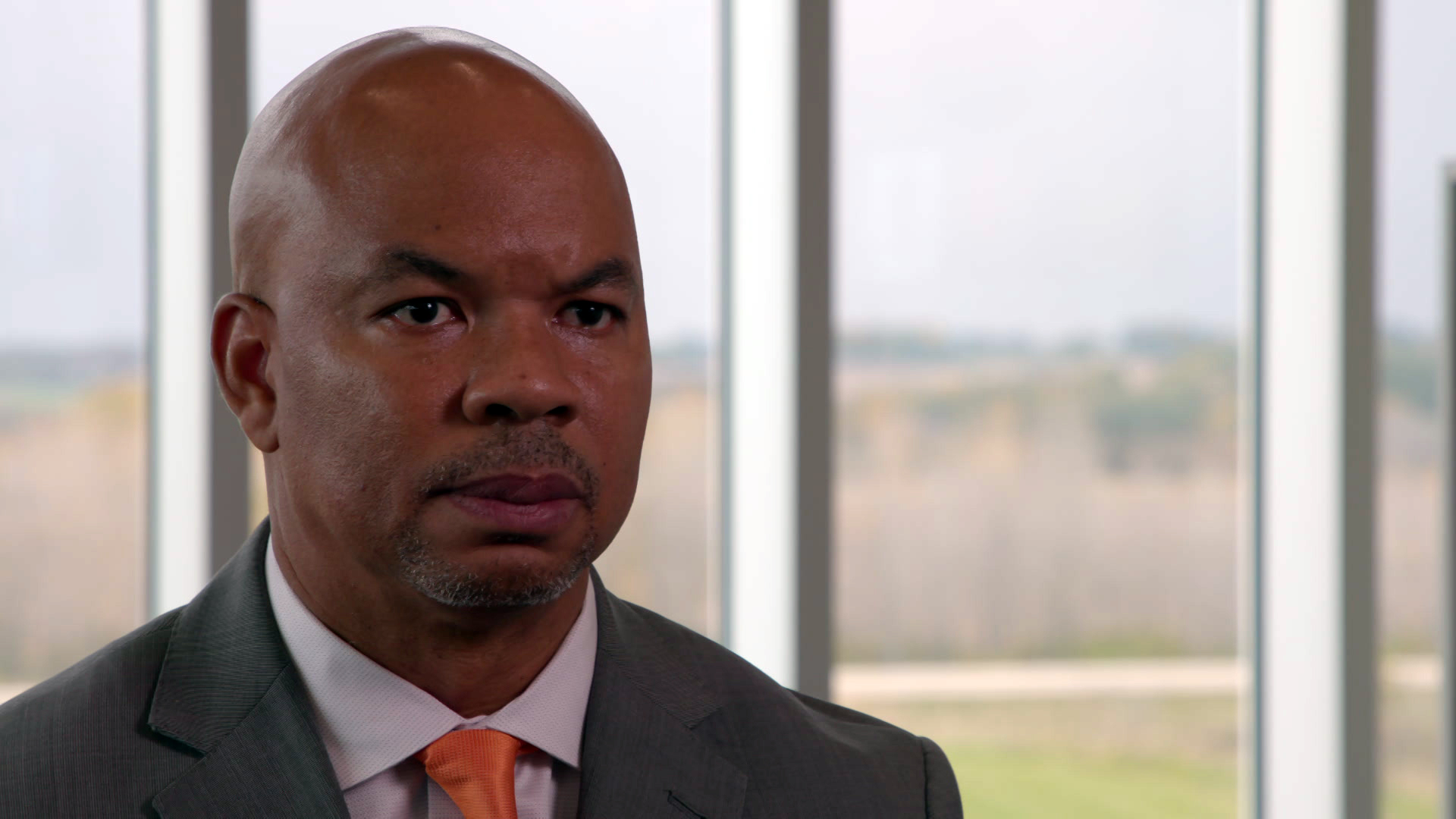
Verona Area School District Superintendent Dr. Tremayne Clardy gives an interview on Nov. 22, 2023. Clardy is leading the implementation of a framework to diversify curriculum and instruction in the district. (Credit: PBS Wisconsin)
Clardy also pursues diversity in Verona schools by recruiting a diverse range of highly qualified applicants and including equity-focused questions in hiring practices.
Because there were so many voices involved in the development of the framework, Clardy said, its implementation has gone well.
“We’re living out the very thing that our community and staff and students desire to have,” said Clardy. “I don’t know how you serve students without understanding their perspectives and voice, and building systems designed to best support their journey as a learner.”
DEI funding in higher education
DEI has become increasingly politicized over the past few years, with Republican lawmakers in Wisconsin and across the nation seeking to roll back DEI efforts and initiatives because they view them as unfair.
After six months of bargaining, Universities of Wisconsin regents approved a deal with the Republican-controlled Legislature to limit DEI efforts in exchange for $800 million in state funds.
Wisconsin’s political clashes over DEI mirror a larger cultural battle over diversity across the nation. As of late February, the Chronicle of Higher Education is tracking 73 anti-DEI bills in 26 different states and the U.S. Congress that have been introduced since 2023.
The UW deal released salary increases that were approved in the state budget but held back by Republican legislators, in addition to money for campus construction projects, including at UW-Madison for a new engineering building.
In exchange, the UW must freeze hiring for diversity positions through 2026 and shift at least 43 diversity positions to focus on “student success.” The system also abandoned an affirmative action faculty hiring program at UW-Madison, replacing it with a faculty position focused on “conservative thought.”
After the deal was struck in December 2023, Republican Wisconsin Assembly Speaker Robin Vos said it was an initial effort toward rolling back DEI in higher education across the state.
“Republicans know this is just the first step in what will be our continuing efforts to eliminate these cancerous DEI practices on UW campuses,” Vos wrote on X, formerly known as Twitter.
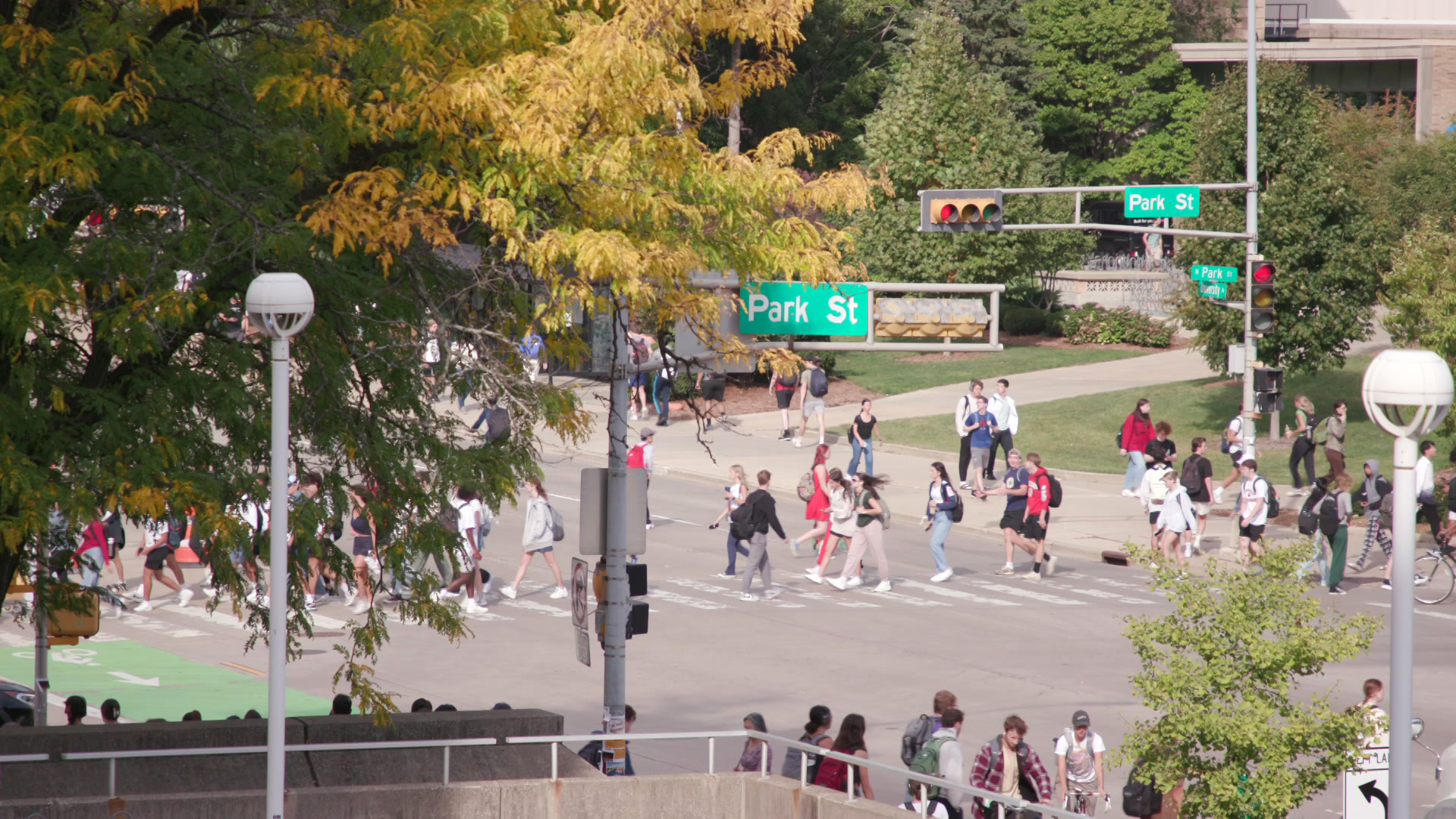
Pedestrians cross streets at the intersection of University Avenue and Park Street in the heart of the UW-Madison campus on Sept. 22, 2023. At the end of 2023, Universities of Wisconsin regents struck a deal with Republican lawmakers to restructure DEI initiatives in exchange for more funding. (Credit: PBS Wisconsin)
Despite this decision to restructure DEI at UW schools, an administrator at UW-Madison said those involved with DEI across UW schools will remain committed to its goals.
Meanwhile, Vos and other Republican lawmakers have continued to wage their fight against DEI through legislative actions.
State Rep. Dave Murphy, R-Greenville, is the chair of the Assembly Committee on Colleges and Universities. In late January 2024, he introduced a constitutional amendment that would prohibit state-government entities, including the UW System, technical colleges and governmental institutions, from discriminating against or granting “preferential treatment” to people on the basis of race, sex, color, ethnicity or national origin in public employment, public education, public contracting or public administration.
Murphy has said he believes diversity in higher education needs to include the diversity of ideas and opinions. In a public hearing on Jan. 30, he said this amendment would restore “merit, fairness and equality not only to hiring by the Universities of Wisconsin system, but to hiring by all governmental entities.”
Murphy did not respond to multiple requests for comment.
In early February, Murphy and other Republican lawmakers introduced a bill that would prohibit Universities of Wisconsin institutions and technical colleges from requesting or requiring any “loyalty pledge” that states personal support or opposition to any political ideology or movement. The bill specifies a prohibition on a “pledge or statement regarding diversity, equity, inclusion or related topics.”
As of 2022, less than 15% of students attending UW schools are from underrepresented racial and ethnic groups.
Wisconsin’s changing demographics
Although Wisconsin is predominantly white, the state’s population is growing increasingly racially diverse.
Enrollment by race and ethnicity in Wisconsin schools shows an overall decrease in the enrollment of white students and an increase in students of color from 2019 to 2022, according to data from the Department of Public Instruction.
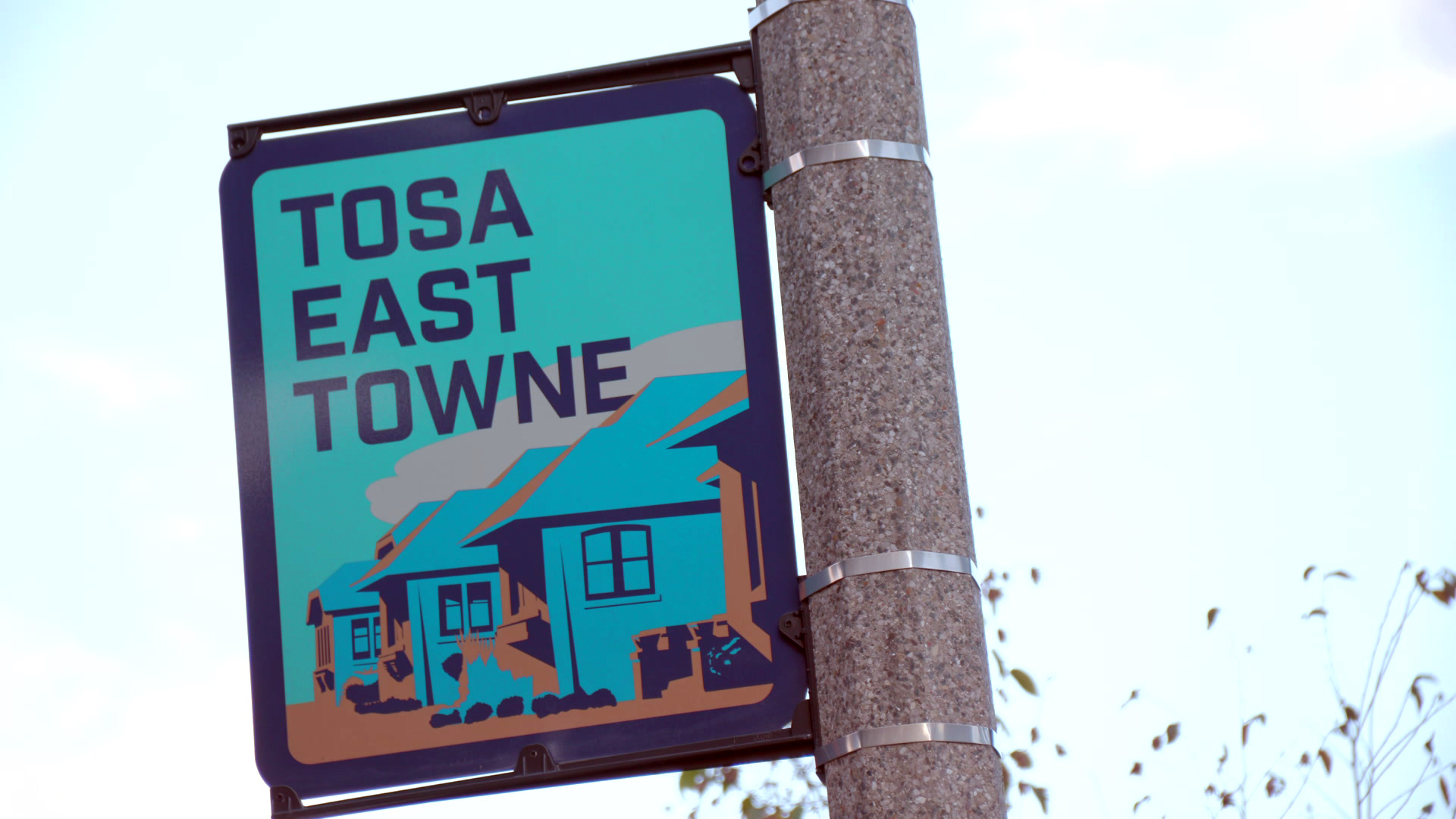
A sign marks the Tosa Ease Town neighborhood in Wauwatosa on Sept. 30, 2020. The population of the Milwaukee suburb is becoming increasingly diverse. (Credit: PBS Wisconsin)
Sarah Kemp, a community and environmental sociology researcher affiliated with the Applied Population Lab at UW-Madison, said factors contributing to this trend are births and migration.
Population projections released by the Census Bureau in 2023 show that increased racial and ethnic diversity in the state reflects a national trend. Although it’s hard to make predictions, Kemp expects this trend to continue and for Wisconsin to grow increasingly diverse.
Kemp noted that this data is self-reported, and given the growing number of children with multi-racial backgrounds, these numbers are more complex than they might seem on their surface.
Reactions to collegiate DEI cuts
There are Wisconsin high school educators who worry that the decision to pull away from DEI efforts in higher education will exclude marginalized students.
Peggy Wirtz-Olsen is president of the Wisconsin Education Association Council, the statewide teachers’ union, and a high school art and English teacher in the School District of Marshfield. She said teachers will continue to promote diversity in high schools across the state.
The union released a statement in December 2023 condemning the state’s DEI deal, stating the Universities of Wisconsin regents “bowed to political and financial pressure” and accepted a deal that will “marginalize a wide swath of students and educators.”
Wirtz-Olsen elaborated on the group’s position.
“This is another overreach by legislative Republicans pushing an extreme agenda on our public schools from kindergarten all the way through college,” said Wirtz-Olsen. She accused lawmakers of repeatedly resorting to bullying and holding public education hostage until they get their way.
“We’ve seen some politicians wanting to restrict our freedoms, institute book bans, and impose some extreme views,” said Wirtz-Olsen. She believes these actions are not what the majority of Wisconsinites want.
“They want schools, kindergarten through college, where our students are safe, healthy and supported,” Wirtz-Olsen added.
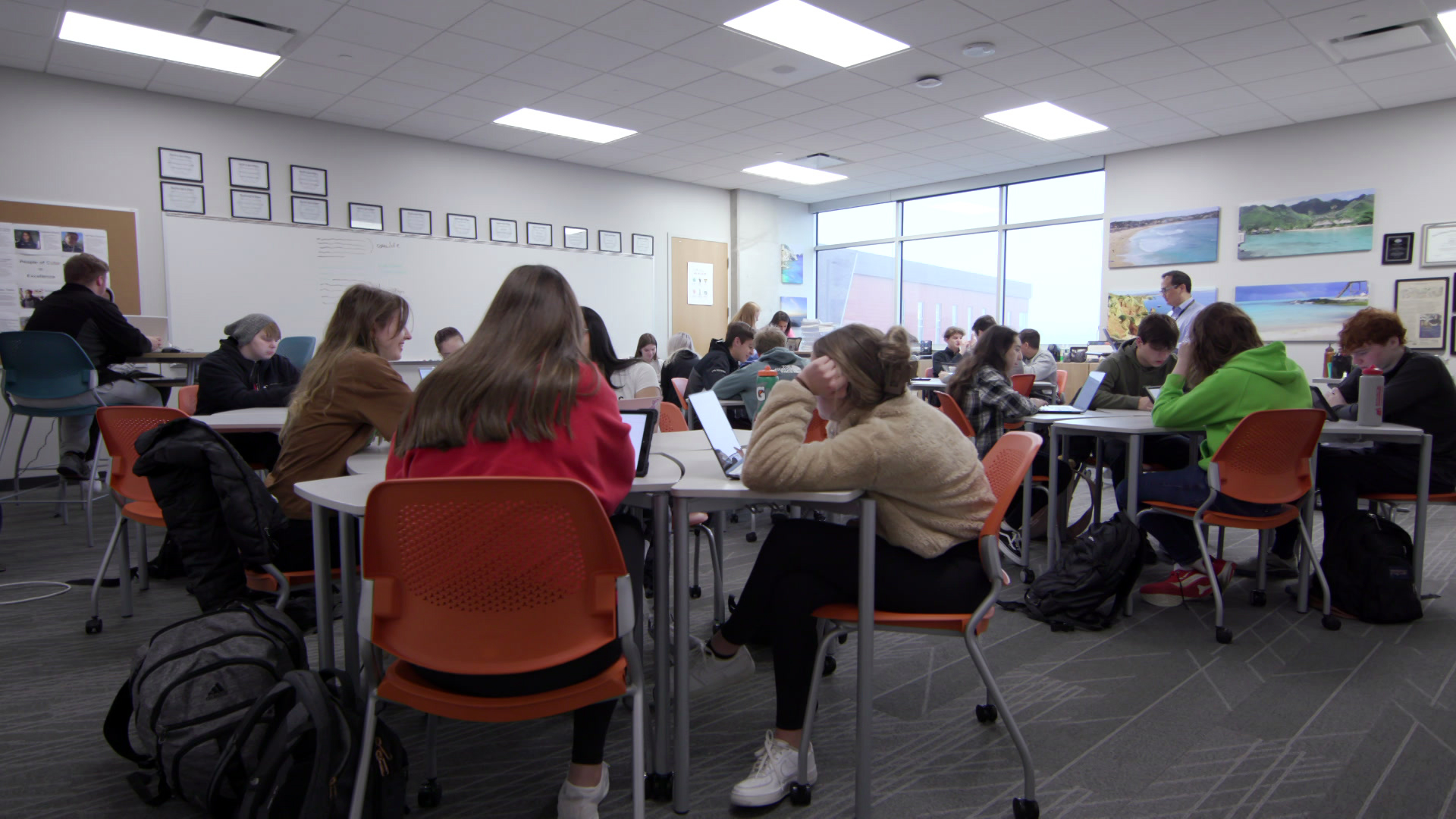
Verona Area High School English teacher Kabby Hong instructs students in a classroom on Nov. 29, 2022. Hong was Wisconsin’s 2022 Teacher of the Year, and has worked to promote the visibility of students, particularly those from an Asian-American background, in the increasingly diverse suburban Madison school district. (Credit: PBS Wisconsin)
The conservative law firm Wisconsin Institute for Law & Liberty issued a statement applauding the decision to reduce DEI efforts at UW schools, saying it will create positive outcomes for all students.
In response to a query, the state Department of Public Instruction sent an email stating diversity, equity and inclusion is at the heart of education, and makes it possible for students to thrive academically and personally.
“It is our relentless pursuit to ensure that every child in Wisconsin feels a sense of belonging in their classrooms, from kindergarten to middle and high school and beyond,” said Demetri Beekman, the agency’s executive director for equity and inclusion.
Looking to the future
Multiple high school educators say the campaign to reduce DEI efforts at the college level signifies a troubling change.
“It sends a message that my voice is not valued, and my seat at the policy table is not welcomed,” said Means. The Wauwatosa schools superintendent is disappointed that as Wisconsin grows more diverse, prominent Republican lawmakers are continuing to wage a fight against diversity.
Wirtz-Olsen worries a disinvestment in DEI will push Wisconsinites out of the state and into other states that are more supportive of diversity and equity.
“Ensuring our state maintains success is going to require all of us leaning into a future where every student, no exceptions, has the same opportunities to really pursue their dreams,” she said.
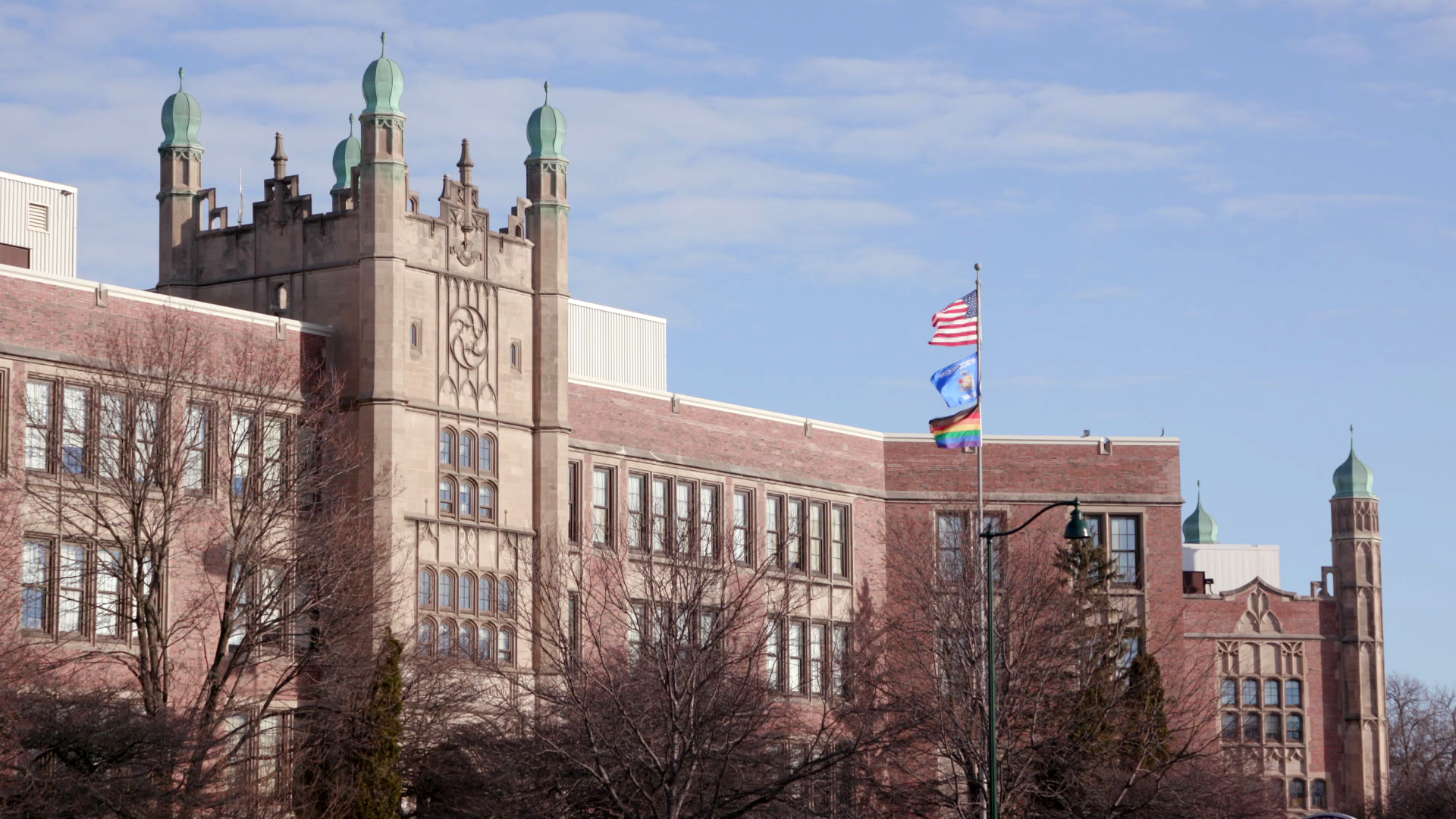
Flags fly outside Madison East High School on March 4, 2021. High school educators who decry political efforts to reduce support for DEI efforts in schools say students from all backgrounds can benefit as they enter an increasingly diverse workforce. (Credit: PBS Wisconsin)
Means believes it’s important to work to keep students of color in the state when they go to college, not only for their own benefit but to ensure that white students too have a robust, comprehensive, and real-life experience on campus.
“Even if we can’t prevent the brain drain, we have an obligation to ensure we’re preparing young people on campuses to go out into a very diverse nation and world and function effectively,” he said. “Caucasian students are also looking for a true diverse learning environment – if those things are not valued at UW schools, they will go to other places.”
Despite viewing the UW’s decision to restructure DEI as sending a negative message to students of color, Means still believes in Wisconsin’s higher education institutions.
“I think it’s unfortunate that the Legislature has taken this approach at providing funding, but I still believe in the administrators and faculty that work at UW system campuses,” said Means.
“Our world, our nation and this state that has been very monolithic for so many years, is evolving and changing and becoming more diverse,” said Means. “I don’t understand how we can turn back and not invest in equity and inclusion for all people.”
 Passport
Passport




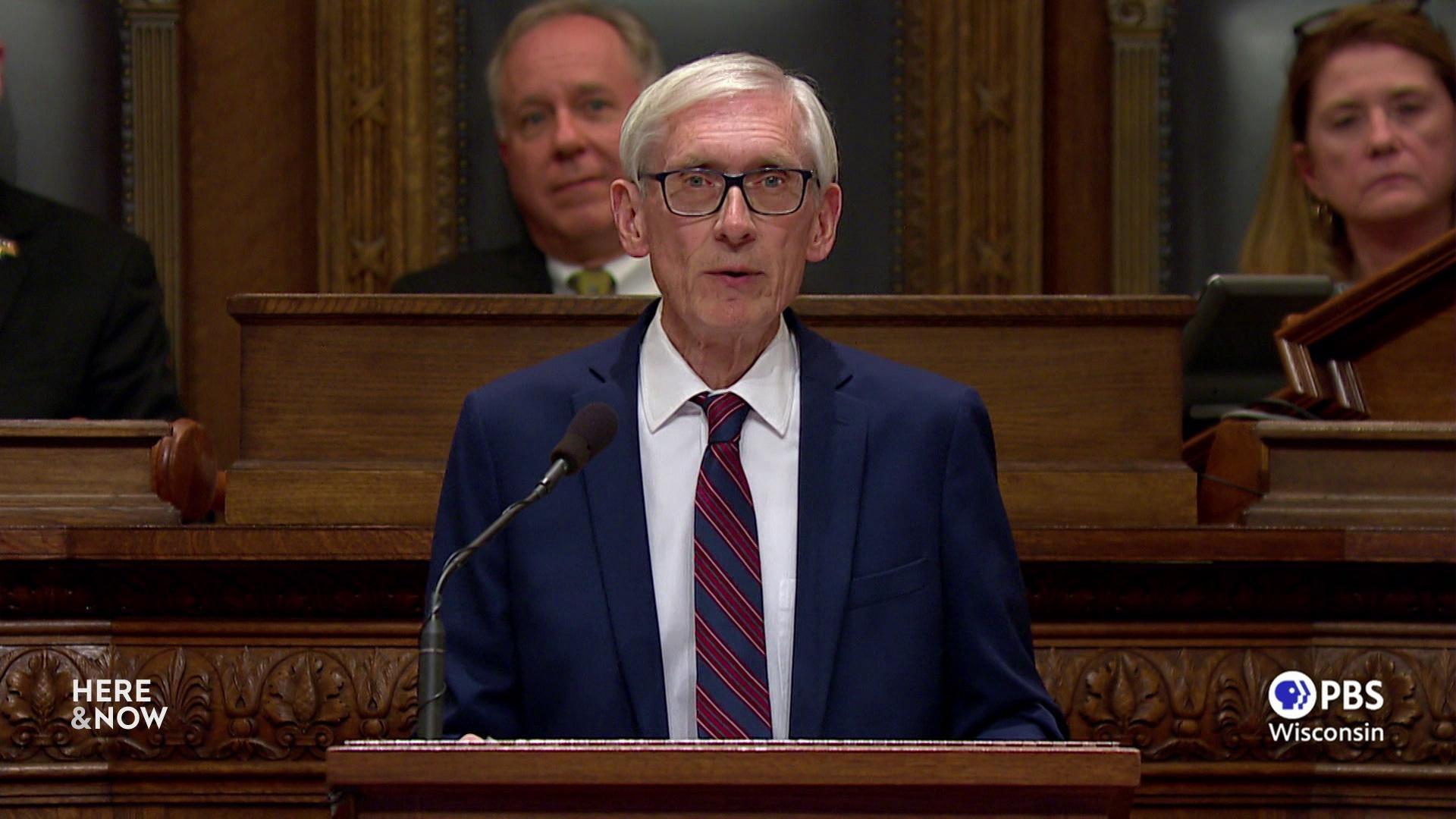
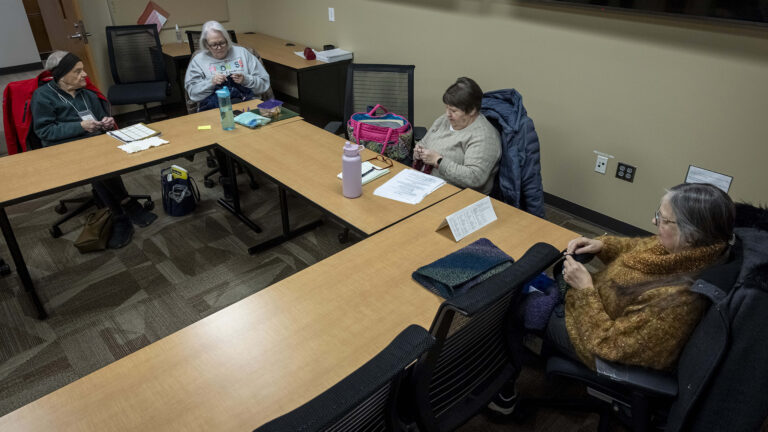
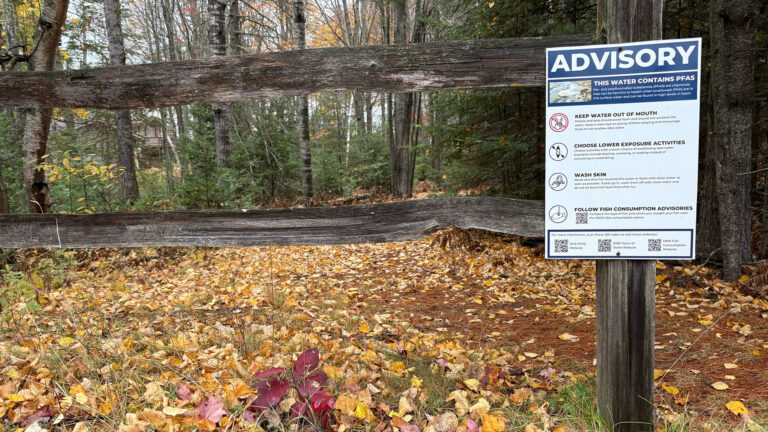
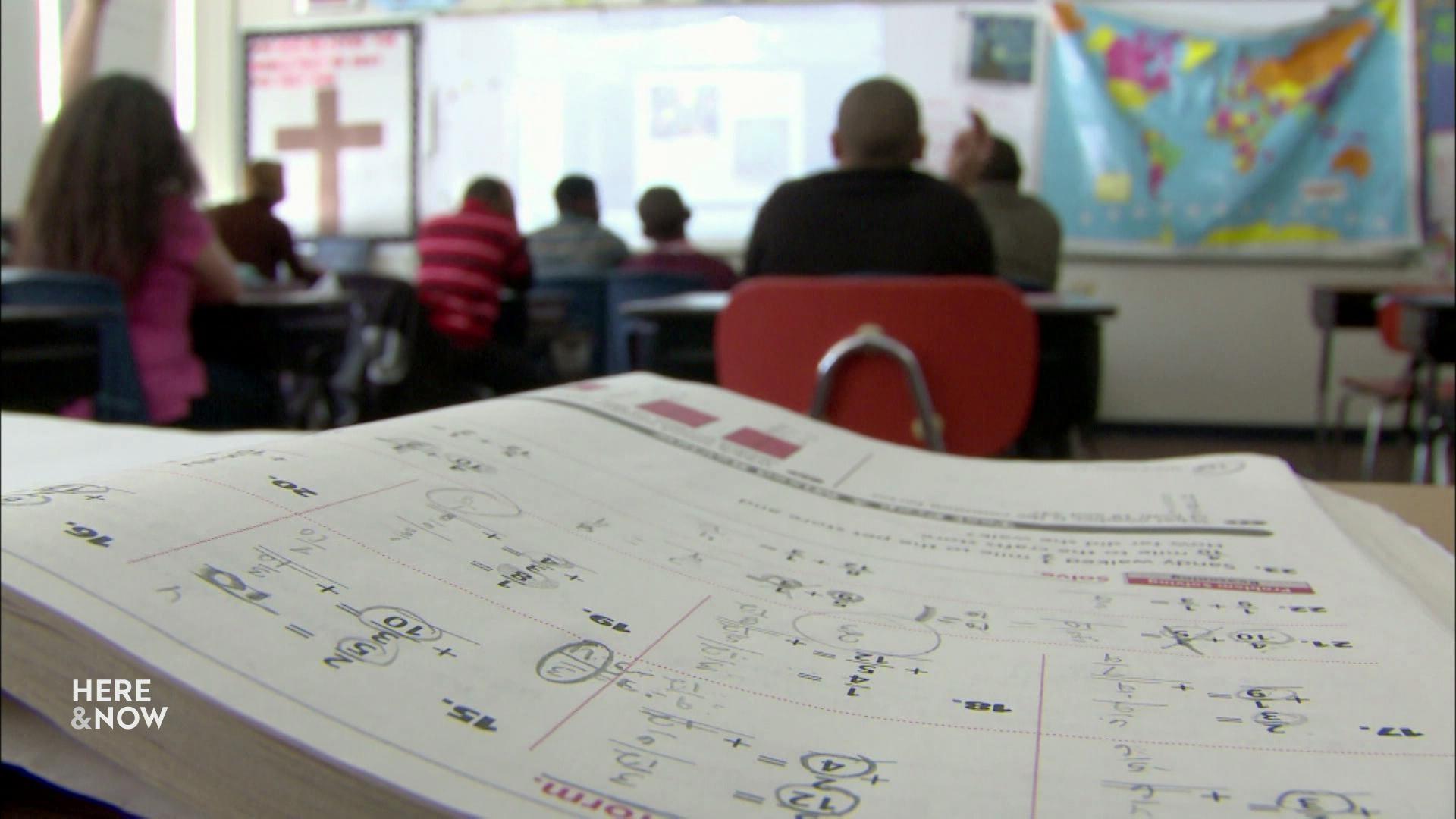
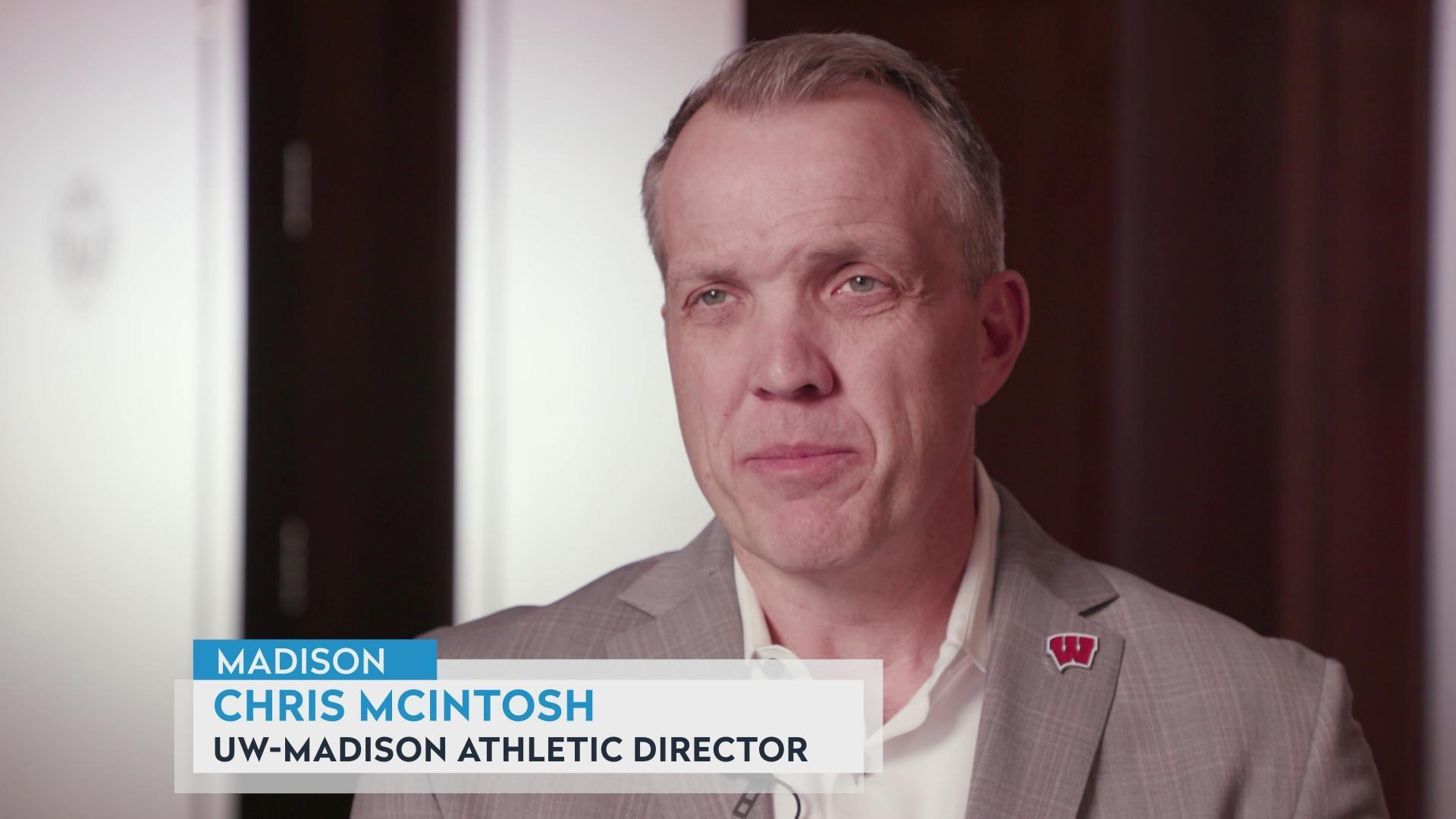
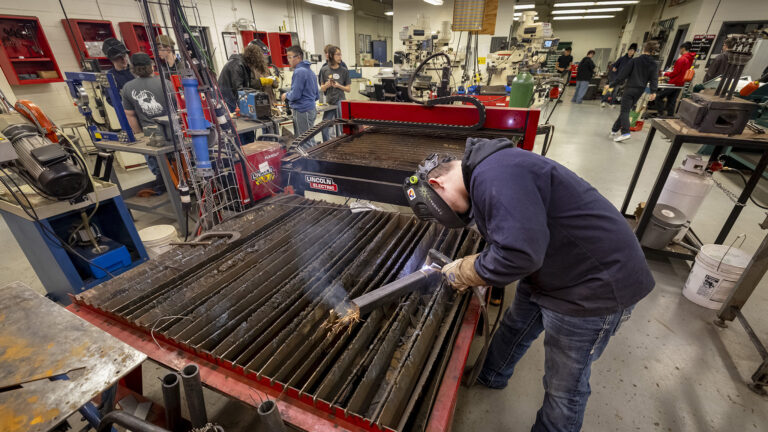

Follow Us